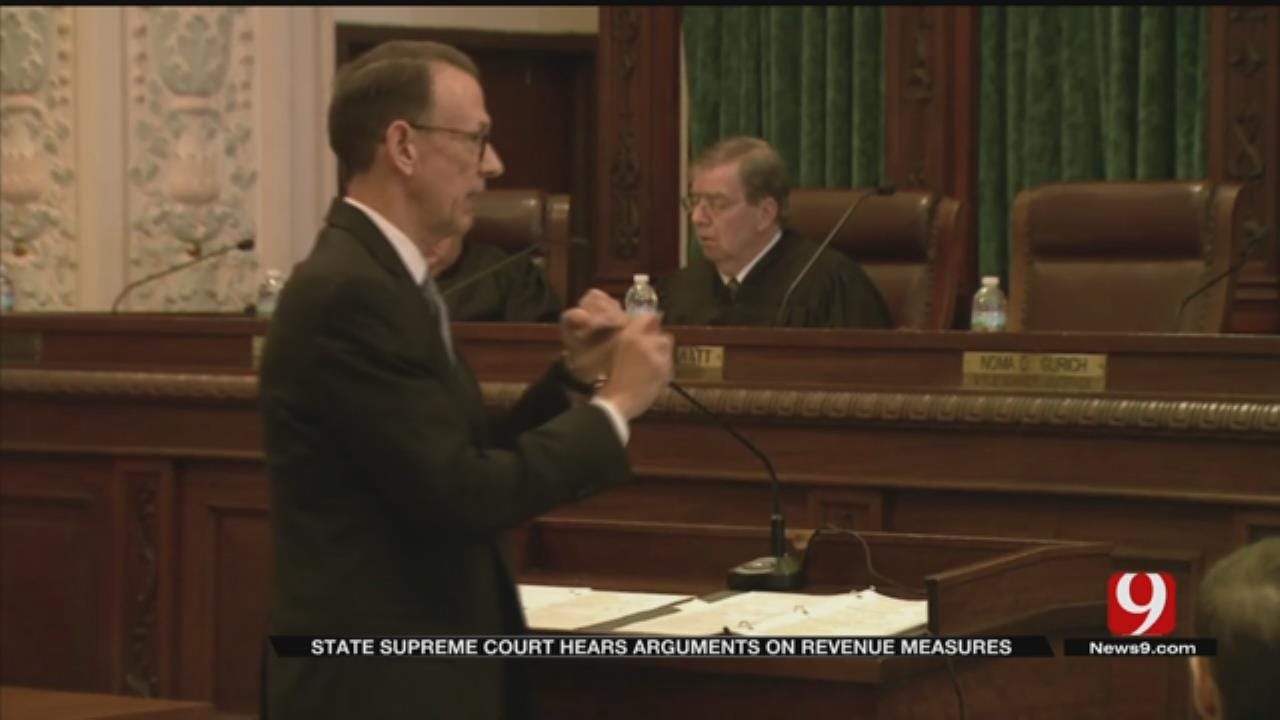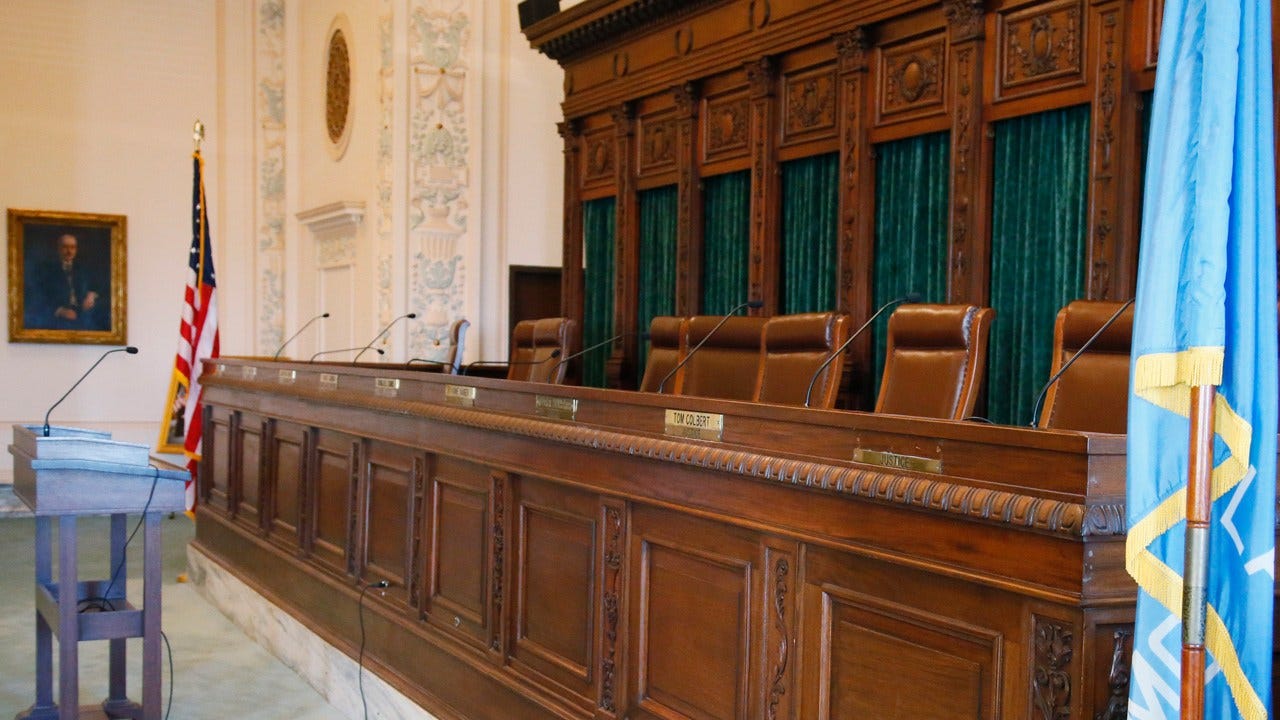State Supreme Court Hears Arguments On Constitutionality Of Last-Minute Tax Bills
<p>The state Supreme Court today heard arguments over three revenue raising measures the legislature passed in the final days of session.</p>Tuesday, August 8th 2017, 6:10 pm
The state Supreme Court today heard arguments over three revenue raising measures the legislature passed in the final days of session. Justices’ decision could have a huge impact on the state.
By law, the legislature can't pass any revenue raising measures in the last five days of session. They did. And now it's up to the state supreme court to decide whether it was constitutional. At issue - three measures. The first: doing away with a sales tax exemption on the sale of new cars.
"This bill was passed, not figuratively but literally at the 11th hour, obviously not within five days," argued Clyde Muchmore, an attorney for the Oklahoma Automobile Dealers Association.
The state argues this isn't a new tax.
"It alters an existing tax exemption for motor vehicle sales such that the sales of motor vehicles are now subject to the same sales tax as most other personal property, 4.5 percent,” said Oklahoma Solicitor General Mithun Mansinghani.
In the past, the Supreme Court has ruled removing an exemption does not create a new tax.
"We held that modification or removal of an exemption from the motor vehicle excise tax is not a levy of a tax," Justice Patrick Wyrick said.
Justices also heard arguments over whether the $1.50 fee on cigarettes is a new tax.
"It's plainly a tax,” Attorney Robert McCampbell argued. “It levies the tax, provides for how it will be collected from the wholesalers, administered by the tax commission, used to support government function."
The state argues the fee is designed to reduce smoking. "The most effective policy to reduce smoking rates is to impose a fee to increase cigarette prices," Mansinghani said.
Justice Patrick Wyrick replied "Blacks law dictionary defines a sin tax as an excise tax imposed on goods or activities that are considered harmful or immoral, such as cigarettes, liquor or gambling. How is that not what this is?”
Mansinghani replied "Sin taxes, you're right, have two objectives sometimes. Sometimes they're to raise revenue, sometimes they're also to discourage harmful behavior."
Justices also heard arguments over whether a fee imposed on electric and hybrid cars is constitutional.
Depending on how the justices rule, the legislature could be called back into a special session or make cuts to services. If justices rule all three measures are constitutional, the legislature isn't expected to take any action.
The Supreme Court recessed without saying when justices expect to make a decision.
More Like This
April 8th, 2025
April 7th, 2025
Top Headlines
April 11th, 2025
April 11th, 2025













